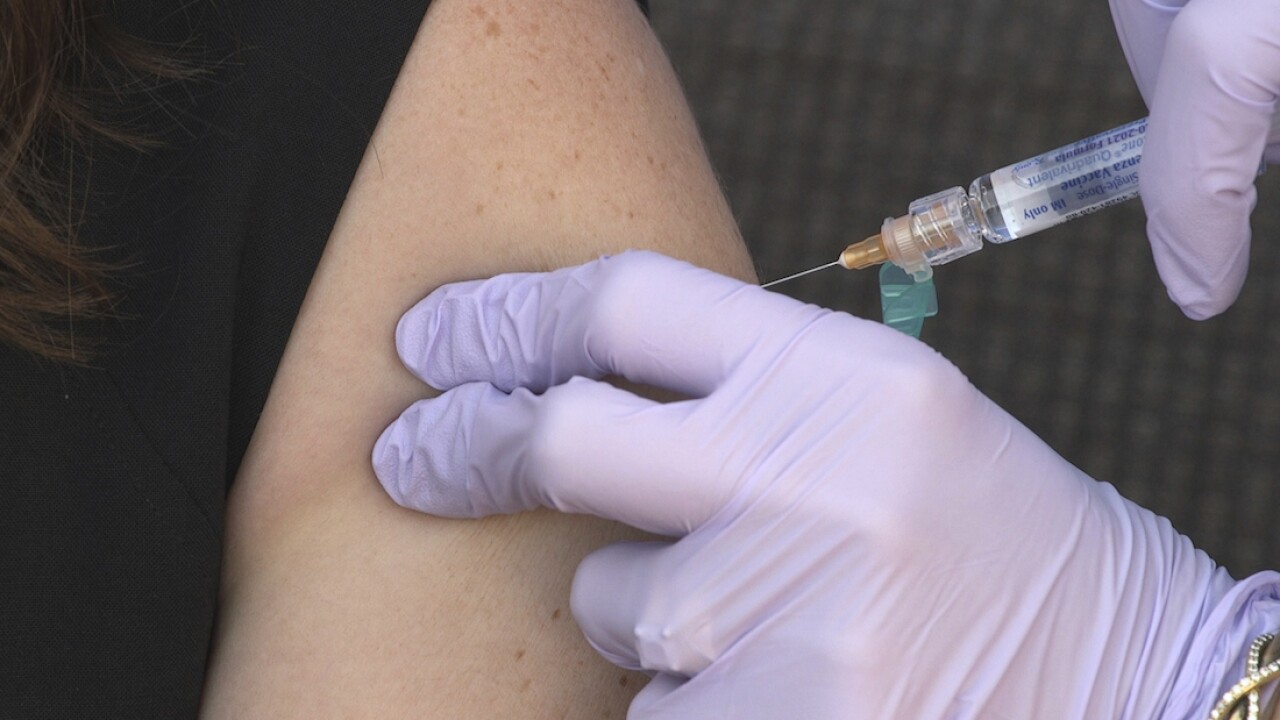MILWAUKEE — The U.S. has passed a new milestone with more than 200 million citizens vaccinated. But now, the Biden administration and health officials nationwide are refocusing their attention on vaccine hesitancy.
With the CDC pausing the use of Johnson and Johnson vaccines in the U.S. earlier this month, and now resuming the use of the shots, there is mounting concern on the topic of vaccine hesitancy.
In fact, a recent poll shows nearly 20% of Americans want nothing to do with vaccine shots.
Vice President Kamala Harris acknowledged the "very real" concerns while speaking to a group of leaders earlier this month.
"No matter the community, trusted leaders, you are the best way to boost confidence," Vice President Harris said.
TMJ4 News is going 360 to gain a deeper understanding of vaccine hesitancy and how to fight it.
We'll hear from our community leaders who have been demanding transparency in the aftermath of the Johnson and Johnson vaccine pause and from Milwaukee's Common Council president about why he went public with his vaccination process.
We will also talk with health officials who explain the science behind vaccines.
But, we start with those leary of the process - including those in the Black and brown communities still impacted by the history of the Tuskegee Study, a study that used African-American men who weren't given proper treatment for syphilis as guinea pugs leading to generations of mistrust towards medical professionals.

"Back at that time, our people were victims. Today, we are part of the solution. We have African-Americans who are involved in science, African-Americans who are involved in developing the vaccine. We are part of the solution," said Tuskegee City Councilman Johnny Ford while receiving his vaccine earlier this year.
Even with assurance from trusted leaders, some others who are refusing vaccines right now say it comes down to trust in a process they feel was rushed.
"They have no authorization, no approval by the FDA besides emergency use. And I do not feel that there is any sort of emergency for me at this point to take this," Shane Gray told an NBC-affiliate earlier this year.
Nationwide, some of those resisting shots say they would rather take their chances with the virus.
Milwaukee Common Council President Caviler Johnson said he understands where mistrusts comes from. He acknowledges it's up to people like him to lead by example.
"It is the most effective tool that we have right now at our disposal to fight Covid. I mean that's just the fact of the matter," said Johnson.

He recently joined Milwaukee County Executive David Crowley and Milwaukee County Board chairwoman Marcelia Nicholson in getting both doses of their vaccines publicly.
"Folks who are trusted in our neighborhoods. If they were to get it that could create additional confidence as well," Johnson said.
He is now calling on others, including elected officials, pastors, business leaders and community activists with large followings to use their platforms to do the same.
When the U.S. did halt the use of the Johnson and Johnson (J&J) vaccine, Milwaukee Alderwoman Milele Coggs and Alderman Russell Stamper used their positions to demand transparency.
"This was our way to make sure that we were personally aware, but also to make sure the community was aware," said Coggs during a committee meeting on April 19th.
The CDC reports that only a handful of people who received the J&J vaccine experienced dangerous symptoms like blood clots.

Milwaukee's health department told TMJ4 News that more than 1500 J&J shots were administered across the city. As a precaution, the council's steering and rules committee asked for clarity and accountability.
From the science side of the debate, doctors say the short pause on the J&J vaccine is proof that safety is top of mind.
"What the FDA is saying is 'look we have two really effective vaccines that we don't have these concerns for. So, let's take some time, let's pause on the Johnson and Johnson front, but let's keep vaccinating with these other ones." said Dr. Matt Anderson with UW-Health.
Samroz Jakvani with the Jefferson County Health Department told TMJ4 News that he does not believe the pause should create any more hesitancy.
"Certainly wouldn't let this one issue prevent you from getting vaccinated or prevent you from having any interest in at least learning more about the data that exists," Jakvani said.
Now, even as data continues to suggest that vaccines are safe and are the number one defender against COVID-19, health officials say vaccine appointments are going unfilled.
Both federal and local governments are expected to take on that issue by intentionally fighting vaccine hesitancy in the weeks ahead.



